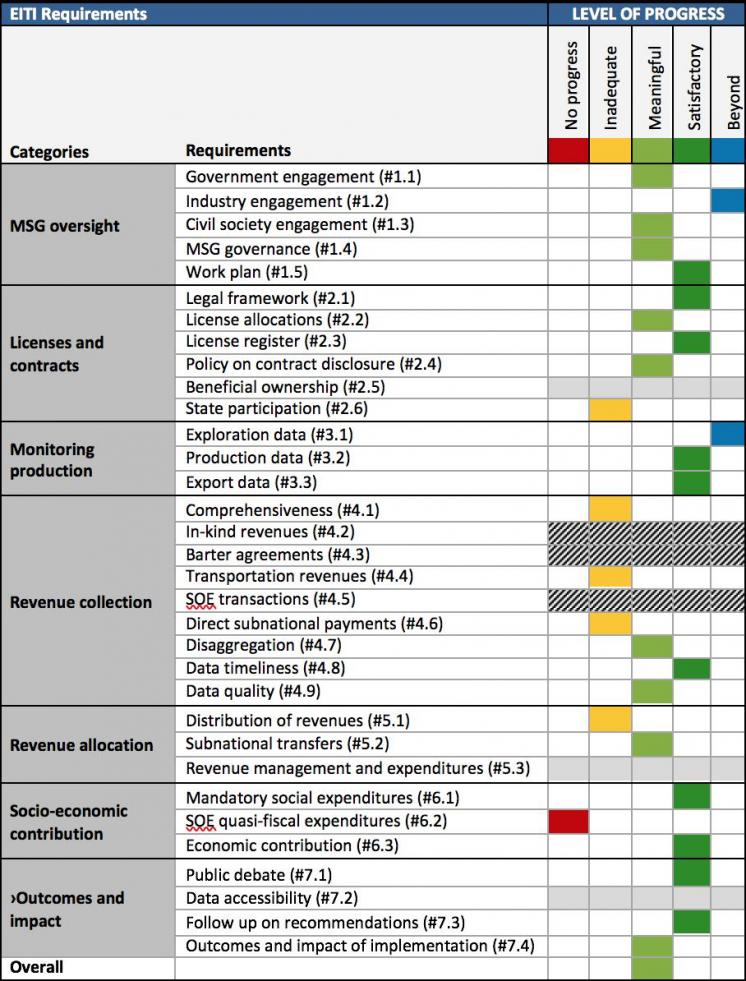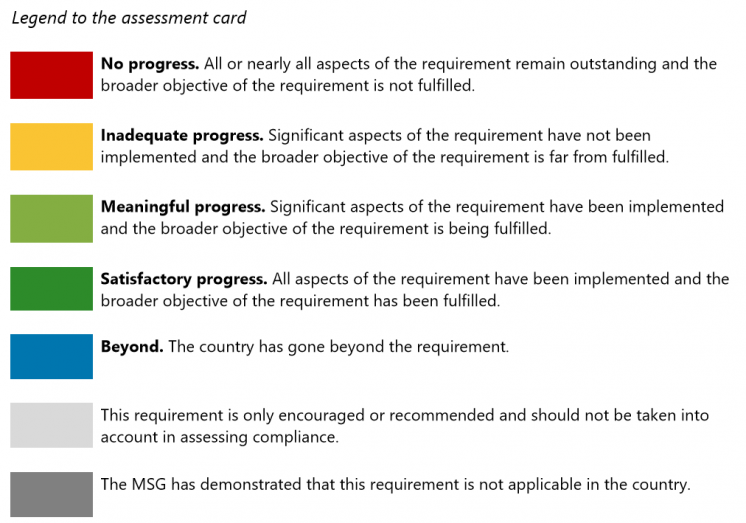
Madagascar recognised as having made meaningful progress against the EITI Standard
Madagascar recognised as having made meaningful progress against the EITI Standard
The EITI Board highlighted the impact EITI implementation has on national priorities such as license allocation and subnational transfers in the mining sector.
29 June 2018 – The EITI Board announced that Madagascar has made meaningful progress overall in implementing the EITI Standard.
EITI Madagascar has had a significant impact on the governance of the extractive sector and overcome funding and capacity challenges. The EITI Board recognised Madagascar implementation in clarifying the allocation of mining licenses and contributing to the launch of an online mining cadaster in 2017.
In taking their decision, the EITI Board drew attention to Madagascar EITI data on subnational payments, transfers and social expenditures that have empowered mayors in communes and regions to demand their statutory shares of extractives revenues. Madagascar also went beyond the minimum requirements of the EITI Standard in disclosing exploration data. Company engagement with the EITI was noted as instrumental in strengthening EITI implementation since 2015. The Board congratulated Madagascar for providing production and export data on the informal gold and precious stones sector.
Upon receiving the news, Daniella Randriafeno, the EITI-Madagascar’s National Coordinator, said
“We hope that the Validation results help strengthen EITI implementation in Madagascar. Over the past months, we have further improved disclosures of payments at the subnational level, on the artisanal and small-scale mining sector and on license allocation. Amongst the upcoming issues we are tackling, we would like to improve environmental reporting and production and export data for precious and semi-precious stones. We will also gradually reinforce our dialogue with declaring entities to improve systematic disclosures on the sector.”
Fredrik Reinfeld, the EITI’s Chair, said:
“Madagascar’s ability to successfully tailor EITI implementation to its national priorities is exemplary. I hope that the government will pursue its efforts to improve public accessibility to reliable extractives data and use it as a tool to strengthen sector reform.”.
The Board encourages the government to continue discussing extractives license management, build on recent progress on subnational transfers, and improve reporting on other nationally important issues such as the transparency of state-owned companies. The Board also takes note of stakeholders’ renewed engagement following the EITI’s institutionalisation into law through a Decree issued in August 2017. All three constituencies are urged to revitalize the Multi-Stakeholder Group in balancing interests equally between partners and representing the interests of their broader constituencies through proactive outreach, canvassing and dissemination.
Madagascar will have 18 months, i.e. until 29 December 2019, before a second Validation to carry out fifteen corrective actions, including regarding requirements related to contract transparency (2.4), state participation (2.6), data quality (4.9), distribution of revenues (5.1) and quasi-fiscal expenditures (6.2).
Scorecard


Notes
- Validation is the EITI’s independent evaluation mechanism. It assesses countries against progress made in meeting the 2016 Standard.
- See here for a full explanation of the various levels of progress under the EITI Standard.
- See the interactive scorecard for Madagascar here.
- The Board's decision in full: 2018-35/BM-40/BP-40-6-D
- The documentation of Madagascar's Validation can be found here.
- For further information about the EITI in Madagascar, please visit the country page on the EITI website.



